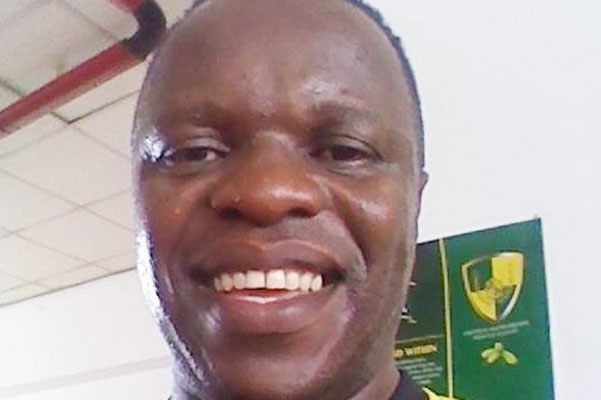
Community development is often regarded as a preserve for government and other international development agencies, which sometimes limits the potential of local players to contribute in national development.
By Takemore Mazuruse
Nyajena Foundation Trust (NFT), a locally registered development trust, is, however, rewriting the development script through well-thought-out programmes in Nyajena in Masvingo.
Founding member and board chairman of the development player Phillus Guzha (pictured right) reckons community development requires homegrown solutions, especially championed by those with better appreciation of obtaining challenges in that locality.
“Development work must be results-based and community-owned, hence the need to champion time-relevant programmes that are in sync with the demands of the intended beneficiaries,” he said.
Guzha’s sentiments were echoed by NFT board secretary Benedict Maodza, who highlighted that they were all born and bred in Masvingo and though luminaries in their various areas of expertise, they felt compelled to give back to their community in a coordinated manner.
“We were all born and bred in Nyajena and we formed this Trust driven by the desire to bring development and lasting solutions to obtaining challenges in our home area,” he said.
“If you look at the makeup of this organisation, you would realise that it taps into the various skills of our peers from Nyajena, but all dotted around Zimbabwe, the region and beyond. We have therefore designed a unique community solutions programme that helps us link and share progress regardless of our different locations across the globe.”
- Chamisa under fire over US$120K donation
- Mavhunga puts DeMbare into Chibuku quarterfinals
- Pension funds bet on Cabora Bassa oilfields
- Councils defy govt fire tender directive
Keep Reading
NFT, which started official operations in 2016, has brought a lot of positives to the Nyajena community through meaningful programmes championed by its various departments which include health, information technology, marketing and awareness, women and gender, education and sport, youth development, agriculture, social services, finance and projects.
The various departments are headed by sons and daughters of the area who are all specialists in their disciplines and these experts are based locally, regionally and even internationally.
“We started off as a Facebook group of over 2 000 people from the Nyajena area and on the platform, we would discuss developmental issues around our area,” Guzha said.
“From the spirited engagements that bordered on our reservations on the pace of development, we then decided to be part of the solution through active participation, hence the formation of this Trust.”
Maodza highlighted that they were not operating as a stand-alone, but they complemented government efforts through working with various departments in their diverse interest areas like health, education and social services, among others.
“We make sure that in whatever we do, we engage relevant ministries and government departments for clearance as well as possible synergies to champion development in the area,” Maodza said.
“This coordination has resulted in better efficiency in our programmes and we are beginning to see positive change in our area.”
Where most small-scale projects in disadvantaged rural areas operate without a sense of direction, NFT has registered a number of local cooperatives so that they can operate in an effective manner with better chances of accessing government loans for development.
“We are taking the development agenda to the next level and we are looking at all community groups like cooperatives with a view to better empower them and position them for government loans through registration,” Guzha said.
“The same also applies for agriculture where we are seeking to ensure that communal farmers in our area benefit from the Tokwe-Mukosi Dam irrigation project.”
Beyond the many plausible programmes that they are championing, NFT recently partnered the District Development Fund (DDF) to sink a borehole at Nyajena District Hospital and set up a water supply system, which is now operational and has helped ease health delivery at the centre.
“We recently held our third edition of the Nyajena Foundation Trust Sports Gala at Renco Mine and we passed through Nyajena District Hospital where we realised they were grappling with water supply challenges,” said Guzha.
“We, therefore, partnered DDF to sink a borehole and set up a water supply system, which has helped ease shortages and we are happy with the changes we are seeing.”
Sports development is the NFT’s flagship undertaking and they hosted the third edition of their annual sports gala at Renco Mine on July 13, covering various sports disciplines.
“We are embarking on full-scale development programme in Nyajena and our hope is that we reach as many people as possible with this agenda,” Guzha said.
“Our flagship programme has been sports development and this year, we hosted the third edition of the NFT Sports Gala where we partnered Renco Mine and other companies to showcase and groom local talent, while bringing various sporting luminaries to inspire these talented, but marginalised youths.
“We have also deliberately incorporated career guidance into this annual event with a view to expose our young people to the various job opportunities available beyond the basics they know like teaching, medical practice and joining the uniformed forces.”
While humanitarian challenges continue to spiral by the day, NFT has set its sight on developing the marginalised and underprivileged and Guzha reckons the future is bright and they are raring to go.
“We are upbeat about the future and while challenges continue to dog our operations owing to funding and other logistical and operational limitations, all hope is not lost and we are geared to play our part,” he said.











